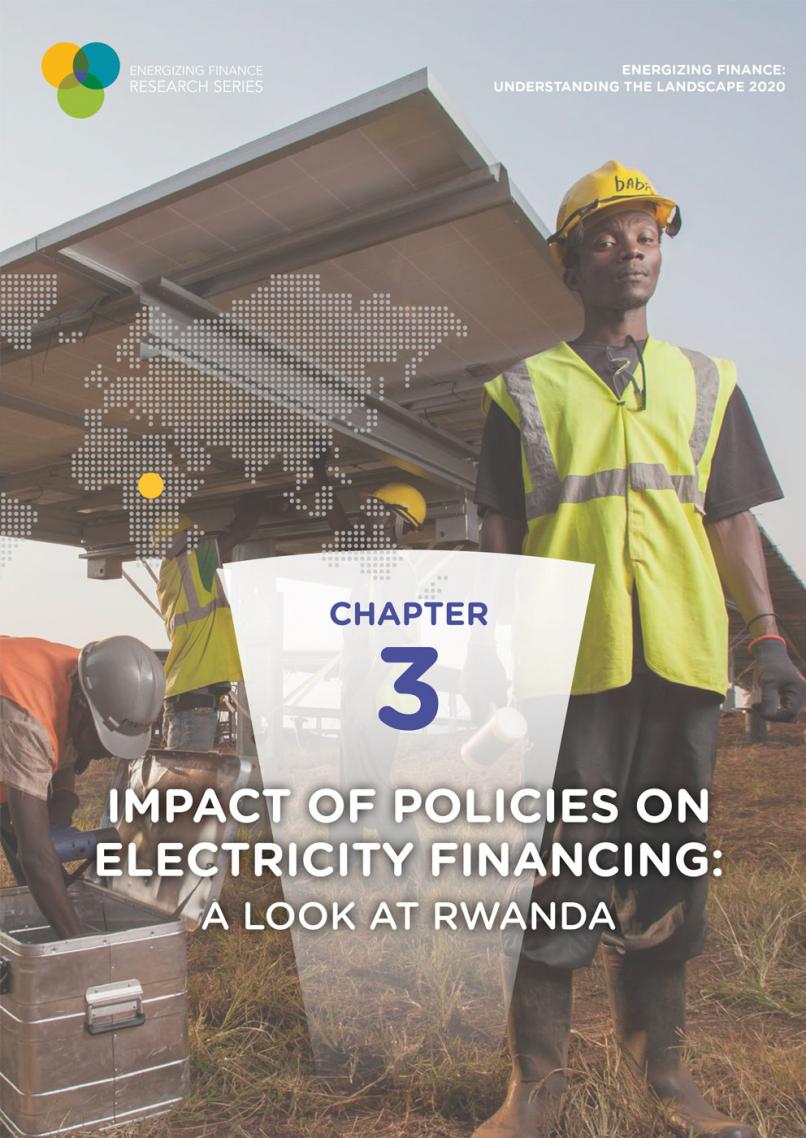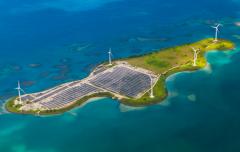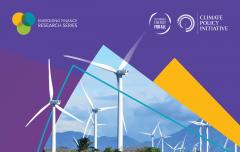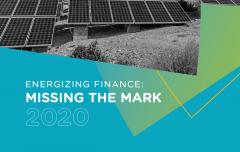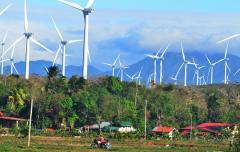Energizing Finance: Impacts of Policies on Electricity Financing in Rwanda
Rwanda’s strong policy frameworks for on-grid and off-grid electrification, cost-effective tariff structures, and restructuring of utilities have been instrumental in increasing electricity access.
This case study - published in the research report Energizing Finance: Understanding the Landscape 2020 - explores how robust domestic policies have contributed to increased electricity access in Rwanda, by measuring electricity sector commitments against Rwanda’s performance in the World Bank’s Regulatory Indicators for Sustainable Energy (RISE) index. RISE is a benchmarking tool designed to quantify and compare national policy frameworks against three pillars: electricity access, renewable energy and energy efficiency.
Rwanda, despite not being a high-impact country (HIC), has shown significant energy sector transformation with accompanying increases in energy access and investment, which can help inform smart policymaking in the HICs. In fact, Rwanda was one of the top three fast movers globally in electricity access between 2010 and 2017, where electrification rates even outpaced population growth. Following changes in its energy sector policies and regulatory frameworks, Rwanda scored higher than the average of other low-income Sub-Saharan African (SSA) countries in 20 out of 28 RISE indicators.

